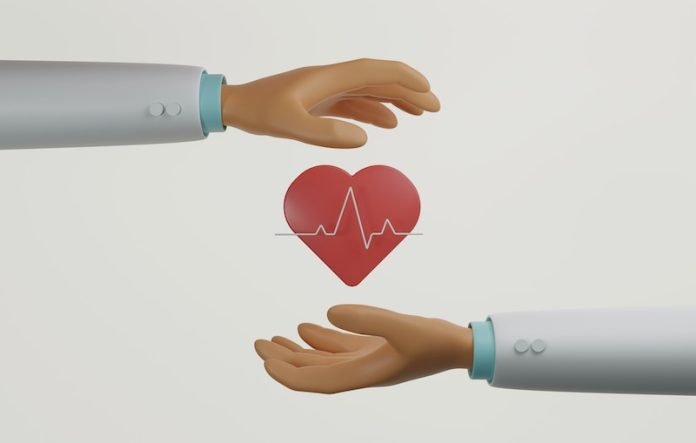
Have you ever thought about how amazing it would be if doctors could predict whether you might have a heart attack, cardiac arrest, or another heart-related issue?
Well, thanks to a new deep-learning tool and artificial intelligence (AI) algorithm developed at Cedars-Sinai, doctors are one step closer to making this a reality!
Using this AI tool, doctors can collect basic clinical data about patients such as their age, gender, weight, heart rate, and blood pressure.
They can also interpret images of the heart that show blood flow to the heart muscle and how the heart expands and contracts.
This information is then analyzed by the AI tool to predict the likelihood of future heart-related problems.
The predictions are presented in a graph format that shows the individual risk of patient death, heart attack, or the need for an invasive cardiovascular intervention over a period of several years.
Doctors and patients can use this information to track changes in risk over time and to identify individual risk factors.
They can even interactively modify certain risk factors to see how it affects the patient’s specific risk.
These predictions could have a significant impact on how patients approach their heart health.
Patients could use this information to engage more meaningfully in the shared decision-making process with their doctors.
Additionally, this tool could provide data-led urgency to heart disease prevention efforts by both patients and providers.
The AI algorithm was developed by Piotr Slomka, Ph.D., director of Innovation in Imaging at Cedars-Sinai, and a research scientist in the Division of Artificial Intelligence in Medicine and the Smidt Heart Institute.
Slomka and his team plan to test these tools in clinical trials at Cedars-Sinai in the near future.
In conclusion, this breakthrough in preventive healthcare is a great example of how technology can improve our lives.
With the help of AI, doctors can provide personalized predictions of a patient’s heart health and empower them to take control of their own health.
How to prevent heart attack
Heart attack, also known as myocardial infarction, occurs when blood flow to the heart is blocked, causing damage to the heart muscle.
This can be a life-threatening condition and it’s important to take steps to reduce your risk of having a heart attack. Here are some ways to lower your risk:
Quit smoking: Smoking is a major risk factor for heart disease, and quitting smoking is one of the most important steps you can take to improve your heart health.
Maintain a healthy weight: Being overweight or obese increases your risk of heart disease, so it’s important to maintain a healthy weight through diet and exercise.
Eat a healthy diet: A diet that is high in fruits, vegetables, whole grains, and lean protein can help reduce your risk of heart disease. Limit your intake of saturated and trans fats, added sugars, and sodium.
Exercise regularly: Regular exercise can help lower your blood pressure, cholesterol levels, and body weight, all of which can reduce your risk of heart disease. Aim for at least 150 minutes of moderate-intensity exercise per week.
Manage stress: Chronic stress can contribute to the development of heart disease, so it’s important to find ways to manage stress through relaxation techniques like meditation, deep breathing, and yoga.
Monitor your blood pressure: High blood pressure can damage your arteries and increase your risk of heart disease. Get your blood pressure checked regularly and work with your doctor to keep it within a healthy range.
Control your cholesterol levels: High levels of cholesterol in your blood can lead to the buildup of plaque in your arteries, increasing your risk of heart disease.
Work with your doctor to monitor your cholesterol levels and take steps to keep them within a healthy range.
Manage diabetes: Diabetes increases your risk of heart disease, so it’s important to manage your blood sugar levels through diet, exercise, and medication.
Limit alcohol consumption: Drinking too much alcohol can increase your blood pressure and contribute to the development of heart disease.
Limit your alcohol consumption to no more than one drink per day for women and two drinks per day for men.
By following these steps, you can help reduce your risk of heart disease and improve your overall heart health. If you have concerns about your heart health, talk to your doctor.
If you care about heart health, please read studies about Aspirin is linked to higher risk of heart failure, and how to remove plaques that cause heart attacks.
For more information about heart health, please see recent studies that Vitamin D deficiency can increase heart disease risk, and results showing Vitamin K2 could help reduce heart disease risk.
The study was published in npj Digital Medicine.
Copyright © 2023 Knowridge Science Report. All rights reserved.



